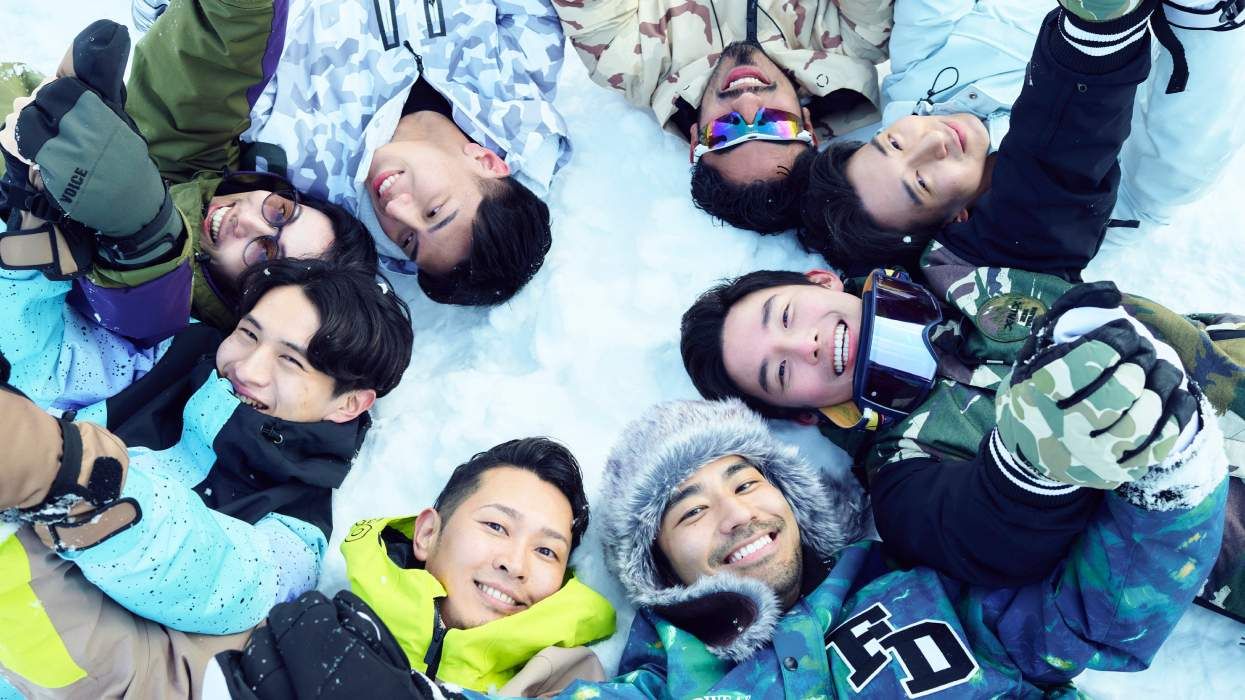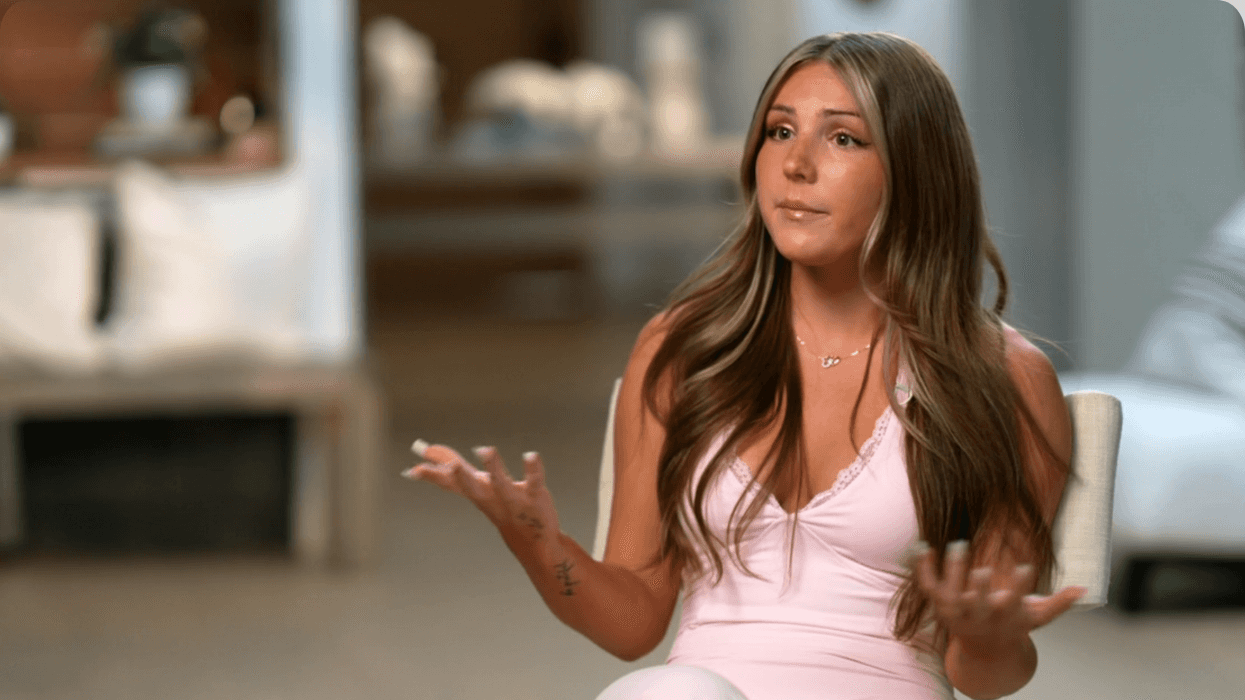Craig Johnson's fourth feature Alex Strangelove debuts this week on Netflix. Led by a cast of newcomers, Alex Strangelove is about one of several coming out narratives hitting screens this year, but it distinguishes itself primarily as a teen sex comedy, with as much heart as it has below-the-belt laughs. Alex is a good student and class president at his progressive high school, and his plans to lose his virginity to his girlfriend Claire are complicated by a new friend, a gay kid from the next town over. OUT contributor Austin Dale sat with Johnson to discuss how it came together.
Related | It's Here: The First Trailer For Netflix's New Gay Teen Comedy
AD: When did you write this movie?
CJ: Ten years ago. We've been trying to get it made ever since, and I would constantly rewrite it as the years went on, especially as there were shifts in the culture, especially in high school culture, towards being more progressive and more open to multiple sexualities in kids. The whole notion that Alex goes to progressive high school where you can come out and there are queer kids was a more recent change, and I actually felt like it helped the conflict, because now it's okay to come out, so it makes it more about an internal feeling. What are you into? Do you really want to be with your girlfriend?
AD: Did you always want to write a teen movie?
CJ: I love teen movies. I did. I'm a child of the eighties, so John Hughes was a huge part of my cinematic upbringing. Ferris Bueller was always my favorite as a kid but I always related to Molly Ringwald, specifically in Pretty In Pink. Actually, it was Ducky I related to in that movie, who is not explicitly queer, but come on. I also love a good raunchy sex comedy from the 80's, from Revenge of the Nerds to Fast Times at Ridgemont High, and later to what Apatow was doing, specifically in Superbad.
AD: Speaking of Superbad, I was excited that there was a lot of sexual content in this movie. It's a hard R.
CJ: It's definitely a hard R. So when I was thinking about the story, which is an autobiographical story for me about my coming out story, I thought if I really embraced a genre, like the teenage sex comedy but also keep it a little romantic and a little real, I didn't think I'd seen that movie. That's what sparked it.
AD: The audience that's going to see this movie are going to see three new faces. Was that a challenge at any point?
CJ: It was the hardest casting I'd done in a movie. Typically with your leads, you have your list of movie stars and so you know what they're bringing and you don't audition. We knew with this movie that we wanted fresh faces, so we had hundreds of kids auditioning from all over the United States and Canada. Once we narrowed it down, we did chemistry reads to see which Alex fit with which Claire and which Elliott. You're doing a whittling down process and eventually landing on these kids. So I did know that casting was the most important part of this movie.
AD: What kind of worries did you have going into this movie? Any concerns on an LGBT level?
CJ: Because the story was so personal, I was really invested in it. But I wasn't worried that it wouldn't resonate, and I knew that I wanted it to resonate beyond an LGBT audience. I hoped that it was universal enough for straight teenagers to groove on it. Sex is confusing and awkward for any teenager, and falling in love and dating and finding out who you are are relatable themes. I have a straight fourteen-year-old boy living within me somewhere. I like gross-out humor and all that, so my hope is we're inviting everyone to the party that goes beyond a queer audience, while I also hope a queer audience will be embracing it.
Beyond that, going back to casting, I did sort of worry, because you're putting a lot on the shoulders of these kids. Carrying a movie is a huge responsibility when you're not a movie star. But with the chemistry and the spark they all had I started to breathe easy a few days into shooting because I thought it was going to work.
AD: This is coming out among a crop of gay teen movies. I don't want to name any names.
CJ: You can name names! Please
AD: Well, Love, Simon. But with this movie, five minutes in, I was like, "Oh, this is different. There's going to be a lot of sex in this movie. Did he just say 'cock'?" Do you have any broad criticisms about the way gay teenagers are represented now that there are a bunch of more mainstream movies to compare and contrast?
CJ: I don't so much have criticisms. I have my own taste. I think there's room for everything. I look at it all as a part of a tapestry of wonderful queer voices. Love, Simon was embraced in particular by, like, thirteen-year-old girls. If you think about that audience, that movie may not have been for you. Or for me. But a thirteen-year-old girl in middle school, who might be crushing on this boy, there's maybe a message they can pull from that. Maybe my friend, who kind of reminds me of Simon, is really going through something. Maybe I'll be nicer to him. Maybe I'll have more understanding. In that sense, it really does have its place. In the same way that Moonlight has its place, and God's Own Country, and Tangerine, just for example. We're in an unprecedented era. There's room for more, there's room for everybody.
AD: One element of this movie I thought Alex Strangelove handled well was Claire. In a lot of these movies - like Call Me By Your Name, like Love, Simon, like Beach Rats - there's a girl who's in a romantic relationship with our lead, and she ends up sort of discarded and treated terribly, and often you don't get enough sense of what she's experiencing. She gets a lot of nuanced attention here, and the last note of this movie belongs to her.
CJ: For me, the relationship between Alex and Claire is the centerpiece of the whole movie. That comes from my own experience. I came out incrementally, all the way into my twenties. I was still attempting to date women, because I had a lot of legit emotional investment in certain girls and girlfriends in my life. I was in love very authentically. And there was always the sex part that got in the way.
I wanted to honor that relationship between a kid struggling with his sexuality and his best friend slash girlfriend. I think it's a very real relationship that exists for a lot of young queer people, no matter where they end up on the spectrum. I think that it's often those girlfriends that help us through. Is there an element of them getting stomped on and becoming inevitable collateral damage? There is. I wanted to explore that and I wanted Claire to have agency, that she was taking responsibility for herself and her feelings, that she would call him out. She's a mature girl, maybe more mature than a lot of girls in that situation, and I respect her for that. I've heard people say they wish she was angrier with him at the end. She has a great conversation with her mother about the value of anger in these situations. When she's faced with this scenario at the end, she's smart enough to know that for better or worse this is the situation she's in, so she makes the gesture - I won't give it away - to help Alex move on and help herself move on.
AD: What are you up to in the future? Are you writing?
CJ: I'm always spinning a few plates. There's a TV thing in the very fetal stages. I'm working on an adaptation of the novel 'The Art of Fielding.' And I'm also dipping my toe into documentary, working on a documentary about the B-52's.
AD: Oh, there's a great B-52's moment in this movie. There's a lot of good music. I loved the Dusty in Memphis cue.
CJ: I'm so happy to hear you say that. That's the most important cue for me. I think that is the sexiest song ever recorded. I tried to put it in The Skeleton Twins. I'm so thrilled that we got it for this movie. It was the one cue I said I'd go to my grave for. It's written into the script. Music is so important for me. I try to handpick everything along with my music supervisors, in a nod to John Hughes, but also a nod to the resurgence of synth pop. I knew we were grooving on a synth pop vibe. I love the bridge it makes between the John Hughes movies and the movies we're seeing today. And then the Dusty and the B-52's are more of a reflection of Elliott's character, who is starting to explore gay history and gay culture a little bit. Hence the Keith Haring shirts.
Watch Alex Strangelove on Netflix on June 8.





























